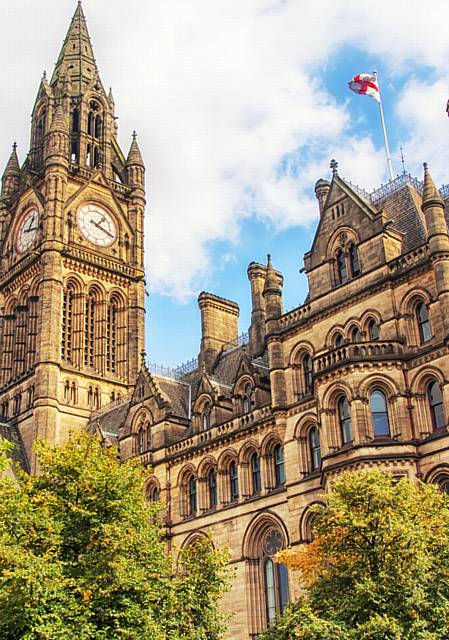Lib Dems propose ending "supermajority councils" - like in Manchester
Date published: 17 September 2018

Manchester Town Hall
The Liberal Democrats have passed a motion laying the foundations to tackle what they call "supermajority problem councils", such as Manchester's, at their Autumn conference in Brighton.
Manchester City Council is made up of 96 seats – three for each ward – with Labour currently controlling 94 seats and the Lib Dems controlling two.
In 2014 and 2015, Labour controlled all 96.
The motion called for Single Transferable Vote at all local elections and for all council meetings to be streamed live on the internet.
The 'Power for People and Communities' motion also gave councillors the right to hold service providers to account, strengthen transparency and planning rules, and abolish Police and Crime Commissioners.
The policy passed at the Lib Dem conference on Saturday is designed to strengthen scrutiny on councils like Manchester and ensure council meetings are always publicly viewable.
Liberal Democrat Communities Spokesperson Greg Stanton said: "Manchester is a textbook case of what happens when a party gets a super majority elected under an outdated electoral system - opposition questions are banned, live-streams mysteriously stop working, contractors are not held to account, decisions made behind closed doors and everyone passes the buck.
"I'm delighted this motion has passed and will lay the foundation to tackling supermajority problem councils like Manchester."
In response, Cllr. Richard Leese, Leader of Manchester City Council said: "To describe Manchester as a one-party state is insulting to the electorate. This is not North Korea. As in the rest of the UK we have free and fair elections with a wide choice of candidates.
"What the Liberal Democrats can't stand is that our electorate consistently prefer Labour candidates with Labour winning over 50% of the vote in 29 out of 32 seats in this May's elections.
"As Council leader I have no power to ban any member from asking questions, and all our decision making meetings have been live-streamed, a Labour decision, for several years now."
Most Viewed News Stories
- 1Police issue appeal following fatal collision on Asda car park in Shaw
- 2Two arrested following early morning raids in Royton
- 3FCHO condemns vandals who broke into Holts Community Centre and set fire to an outbuilding
- 4Plans proposed to turn former Clough Manor hotel into 'multi-service hub'
- 5Oldham poets transform dementia experience into book of warmth and hope




